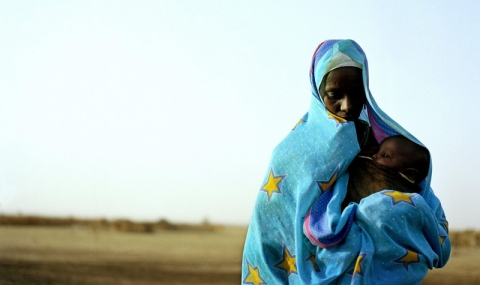Phase 1: What is the rate of PTSD among refugees in San Diego?
| Update March 2013: Here are the results. For latest information about this project, visit our website » December 2012: See past updates #2, #1. Thank you for the support everyone. Wanna get involved? Get in touch with us at info@livingubuntu.org or (949) 891-2005. |
Hi everyone,
What happens when someone was born and raised in a conflict zone, or witnessed acts of genocide?
What happens when the violence was experienced firsthand, possibly even sexual assault? What happens when part of life took place in a refugee camp? What happens when a person has survived but lost countless numbers of family and friends? What happens when “home” will never be home again?
The depth of shock and loss are way beyond what can be expressed in words, but what we know is that the struggle with these things doesn’t go away when a refugee moves to the U.S.
Trauma shatters a person and life as known before will never be the same again. While some have the inner resiliency to recover without help, for many, that just isn’t the case and the suffering persists.
What are some of the PTSD symptoms for refugees?
- Insomnia, nightmares, anxiety, depression, and trouble concentrating.
- Substance abuse and domestic violence.
- Quickness of anger and mistrust of others. This adds to the difficulty in resolving conflicts within the community.
When traumatic experiences haven’t been resolved, employment, education, relationships, and physical health are significantly affected.
The individual suffers… the family suffers… and the entire community suffers….
Why are we doing this?
Click here to read more »
We know that 75% of the displaced children from Darfur living in refugee camps met the diagnostic criteria for PTSD.
What is the rate of PTSD in East African refugees living here in San Diego? We don’t know, but we want to find out.
* * *

Our plan
- Translate sections of the Harvard Trauma Questionnaire (a PTSD assessment tool) into Swahili, Arabic and Somali to make it easier for refugees to understand.
- Get 150 refugees from East Africa who currently live in San Diego to fill it out.
- Compile and analyze the data to determine rates of PTSD among this population.
This will help us move one step closer towards our long-term goal of launching an ongoing Trauma Recovery Program for refugees and immigrants in San Diego.
How you can help?
We want to give each of the 150 refugees a $15 Visa or MasterCard gift card as an incentive and to say “thanks”. That means if a husband and wife both participate they will have an extra $30 to spend on something their family needs such as extra diapers or school supplies.
We need to raise funds to cover the cost of the gift cards. 150 refugees x $15 each = $2250.
- $450 would provide gift cards for 30 refugees. 1/5th of our goal.
- $150 would provide gift cards for 10 refugees.
- $75 would provide gift cards for 5 refugees.
- $30 would provide gift cards for 2 refugees.
- $15 would provide a gift card for 1 refugee.
Can you help us with this?
The budget
- 150 refugees x $15 gift cards = $2250
- Banking fees (~3%) = $70
- License for Harvard Trauma Questionnaire = $150
- Marketing costs (flyers, printing etc.) = $100
- Food & refreshments for day-of = $100
- Total = $2670
The team
- Chuol Tut, Executive Director of Southern Sudanese Center of San Diego
- Barbara English, LMFT, CBT and Executive Director of Living Ubuntu
- Jan Parker, LMFT, CBT, Associate Professor, Department of Psychology, National University
- Charles Tatum, PhD, Lead MA in Human Behavior, Department of Psychology, National University
- Brenda L. Shook, PhD, Program Lead Faculty, Department of Psychology, National University
Living Ubuntu is a 501c3 non-profit organization with a focus on mind-body issues, specifically health and well-being, and the effects of stress, trauma and compassion fatigue. We seek to increase awareness of the global and local impact of these issues, build a sense of community, and encourage living a more fully embodied life. For more information, please visit http://livingubuntu.org.
National University is the second-largest, private, non-profit institution of higher learning in California. For more information, please visit http://nu.edu.
Southern Sudanese Community Center of San Diego is a 501c3 non-profit organization that provides support for those who have immigrated from war torn South Sudan. Most of its staff is unpaid volunteers who donate their time to support refugee communities. http://ssccsd.org.
Sudanese American Youth Center San Diego is a non-profit organization based in the San Diego, California area focusing on mentoring Sudanese youth on how to become successful in the United States and still maintain the Sudanese cultural identity and value. http://saycsd.org.
* * *
Thank you in advance for your support. We are very grateful for your contribution and the refugee families will be too.
This research project is our first step toward launching a Trauma Recovery Program for Refugees and Immigrants in San Diego.
Thank you for helping us meet with success in this effort.
With gratitude,
Barbara English
Executive Director, Living Ubuntu
http://livingubuntu.org
(949) 891-2005
[Ubuntu] n.
Every human being truly becomes a human by means of relationships with other human being.
Powered by WPeMatico
